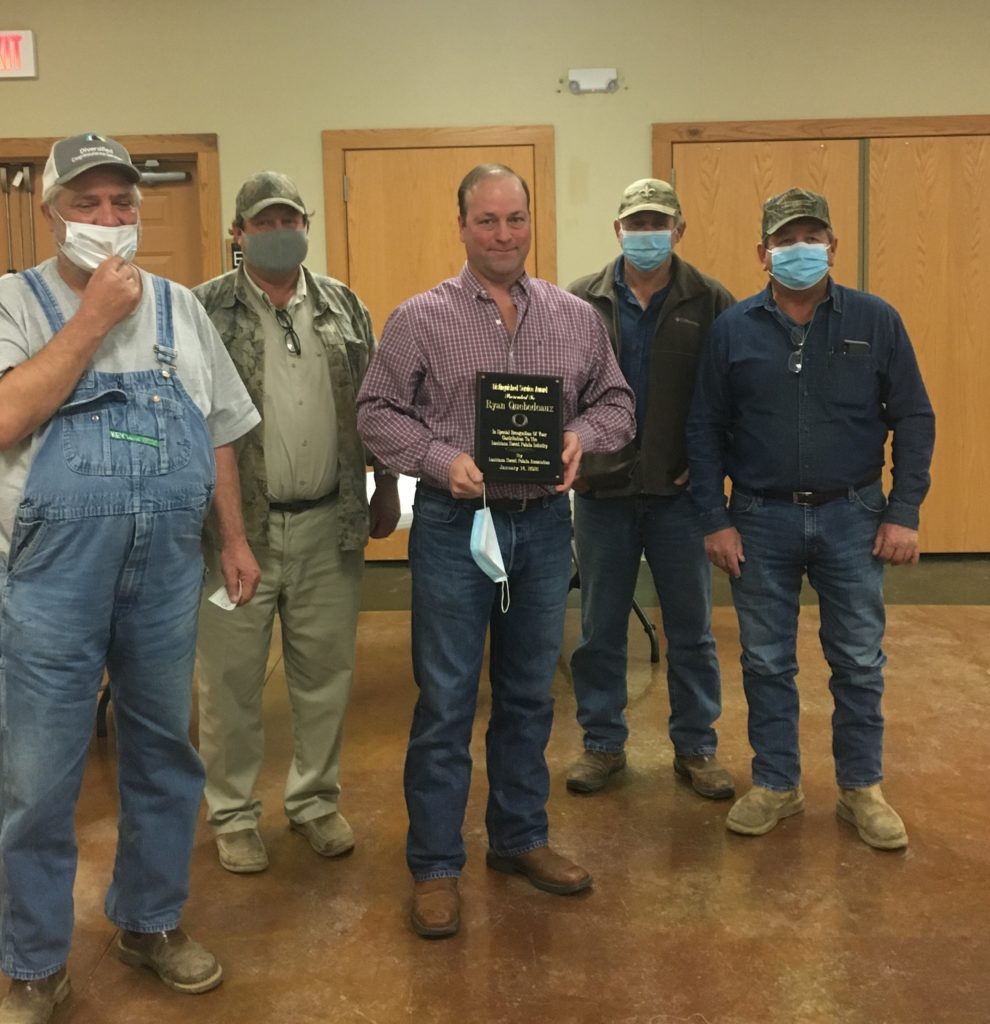Feb 1, 2021Sweet potato meeting held to discuss research, updates
After what has been called an average crop year, the annual meeting of the Louisiana Sweet Potato Association provided a better outlook.
Those in the industry were given a sneak peek at some potential new varieties as well as ways to improve growing conditions and increase yields.
Tara Smith, director of the AgCenter Central Region and research coordinator of the Sweet Potato Research Station, said scientists gave updates on new varieties, production methods and research on managing insects, nematodes, diseases and weeds.
AgCenter sweet potato breeder Don La Bonte explained the process for developing sweet potato varieties. He also introduced some of the newer varieties selected from a long process that starts with tens of thousands of seeds.
Some of his research and evaluation is done in conjunction with sweet potato producers on farms in different sweet potato production regions.
“LA 18-100 was exceptional at the James Deshotel and Larry Fontenot farms,” he said. “It’s a Beauregard, Orleans look-alike with very high yield in mostly the No. 1 category. Everything else in the plots just looked average.”
La Bonte said the variety is susceptible to intermediate fusarium wilt, intermediate to resistant to soil rot, highly resistant to southern root-knot nematode and intermediately resistant to guava root-knot nematode.
“We will evaluate heavily in 2021 to see what’s right and what’s wrong. Hopefully more is right about it,” he said. “It did well in our taste test trials too.”
AgCenter plant pathologist Chris Clark leads the virus-testing aspects of the AgCenter sweet potato foundation seed program.
Clark and his researchers use numerous complicated steps, such as molecular assays, to help establish that plant material is free of virus.
“Other areas of my research look at clean plant production, maintenance, therapy, virus testing and rapid propagation,” he said.
LSU AgCenter sweet potato researcher Arthur Villordon gave an update on his drip irrigation research.
“Our small plot data demonstrates the economic benefits of drip irrigation despite 11 inches of rainfall,” he said. “Additional trials are needed, including on-farm strip trials if possible.”
Smith said holding the meeting virtually was necessary, but the researchers were able to present their information in an abbreviated format with handouts of more detailed results.
“This is a meeting where our entire industry comes together, including Louisiana sweet potato producers, the LSU AgCenter sweet potato research and extension team, the Louisiana Sweet Potato Commission, LDAF and our industry partners,” Smith said. “The Louisiana Sweet Potato Association also holds their annual business meeting during this meeting.”
Much of the research is funded by the Louisiana Sweet Potato Commission, and this meeting provides an opportunity for researchers to give updates and share results from different projects, she said.
During the meeting, Ryan Quebedeaux, of Quebedeaux Produce in Mansura, was presented the Louisiana Sweet Potato Association Distinguished Service Award.
The award was presented at the Avoyelles Parish Extension Office during the annual meeting of the association, held Jan. 14, 2021.Quebedeaux has worked to support the industry in many capacities for more than 20 years, Smith said.
She said overall, 2020 was a decent year for sweet potatoes, with the majority of the crop harvested from good conditions with good quality.
But there were some weather issues late in the season with hurricanes, said LSU AgCenter extension associate Myrl Sistrunk. Avoyelles Parish probably fared the worst because it had already received significant rainfall before the storms.
Sweet potato acreage continues to decrease. About 6,700 acres were planted in 2020 by about 30 commercial growers in the state, with total income of $95 million.
The AgCenter Sweet Potato Research Station in Chase is the only facility in America whose sole purpose is to research sweet potatoes. The new varieties developed at the station are some of the most popular to be grown worldwide.
– Johnny Mogan, LSU AgCenter















